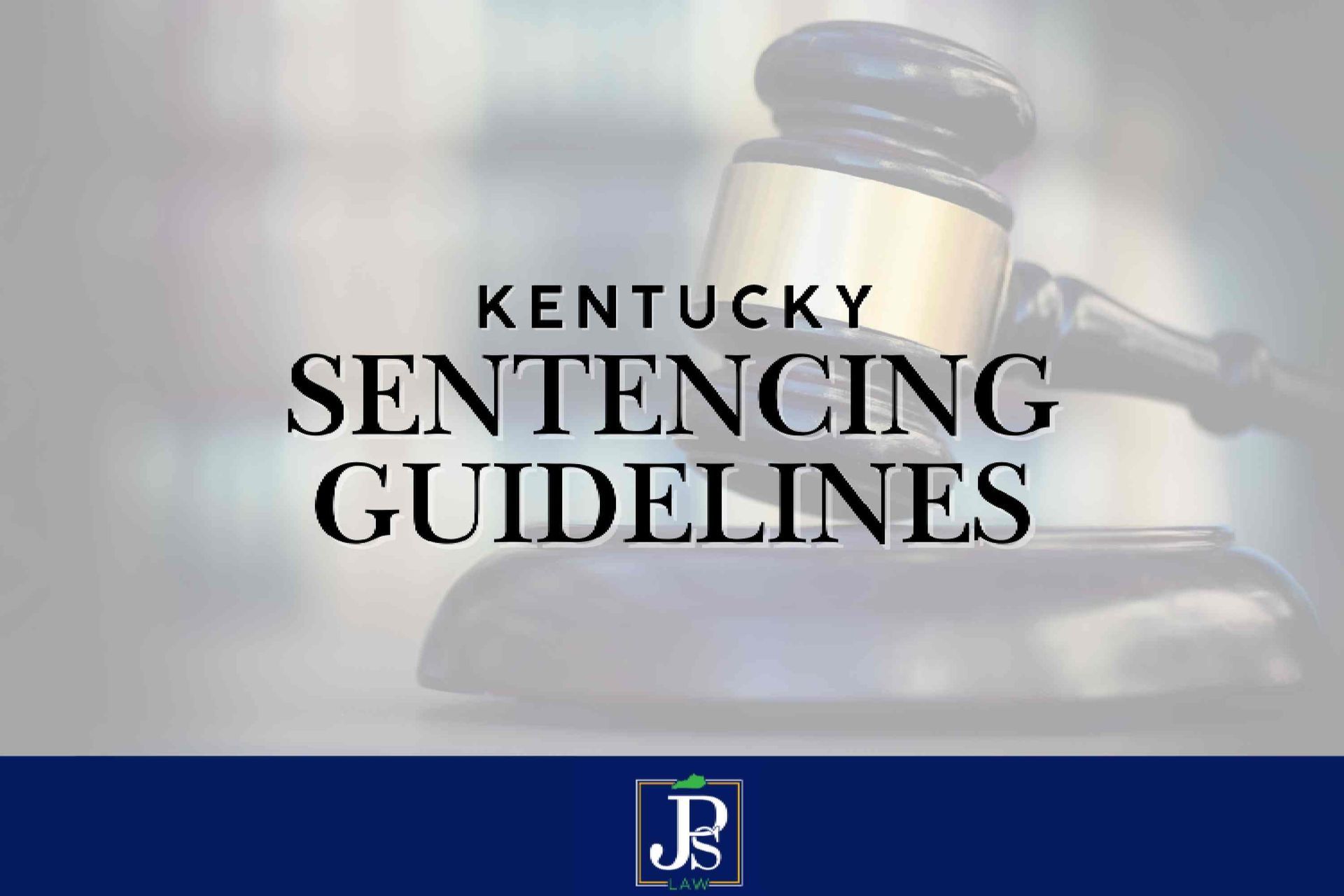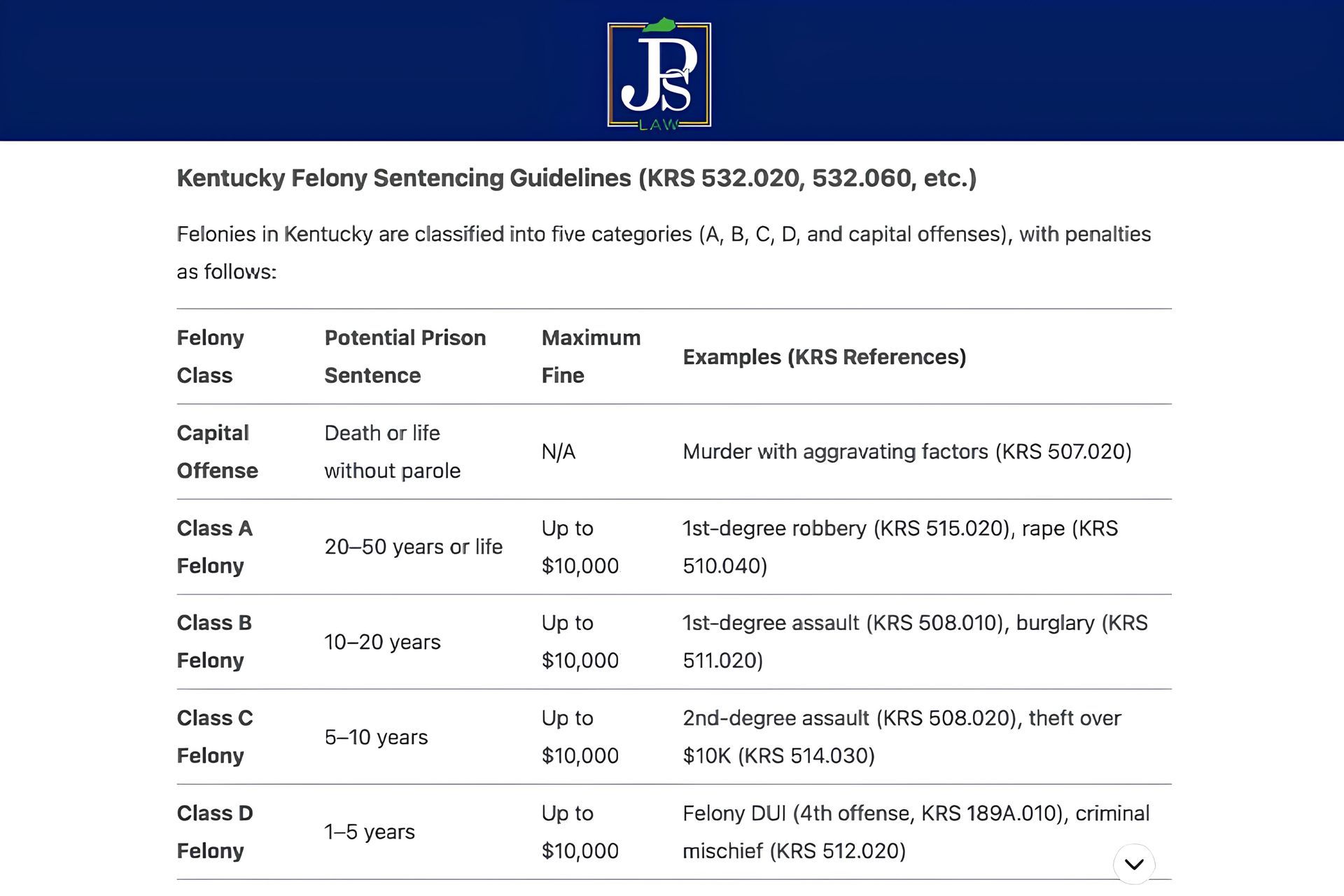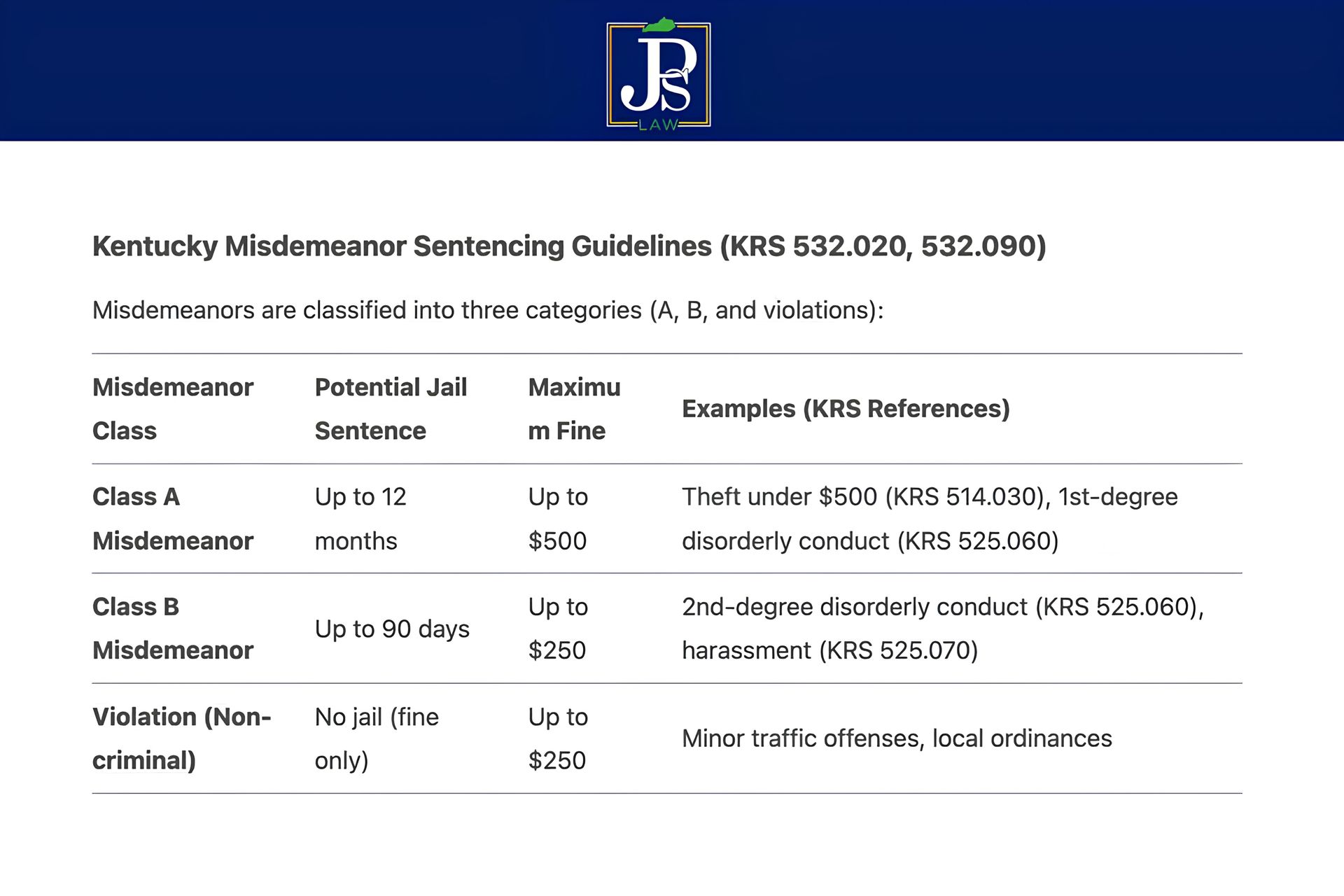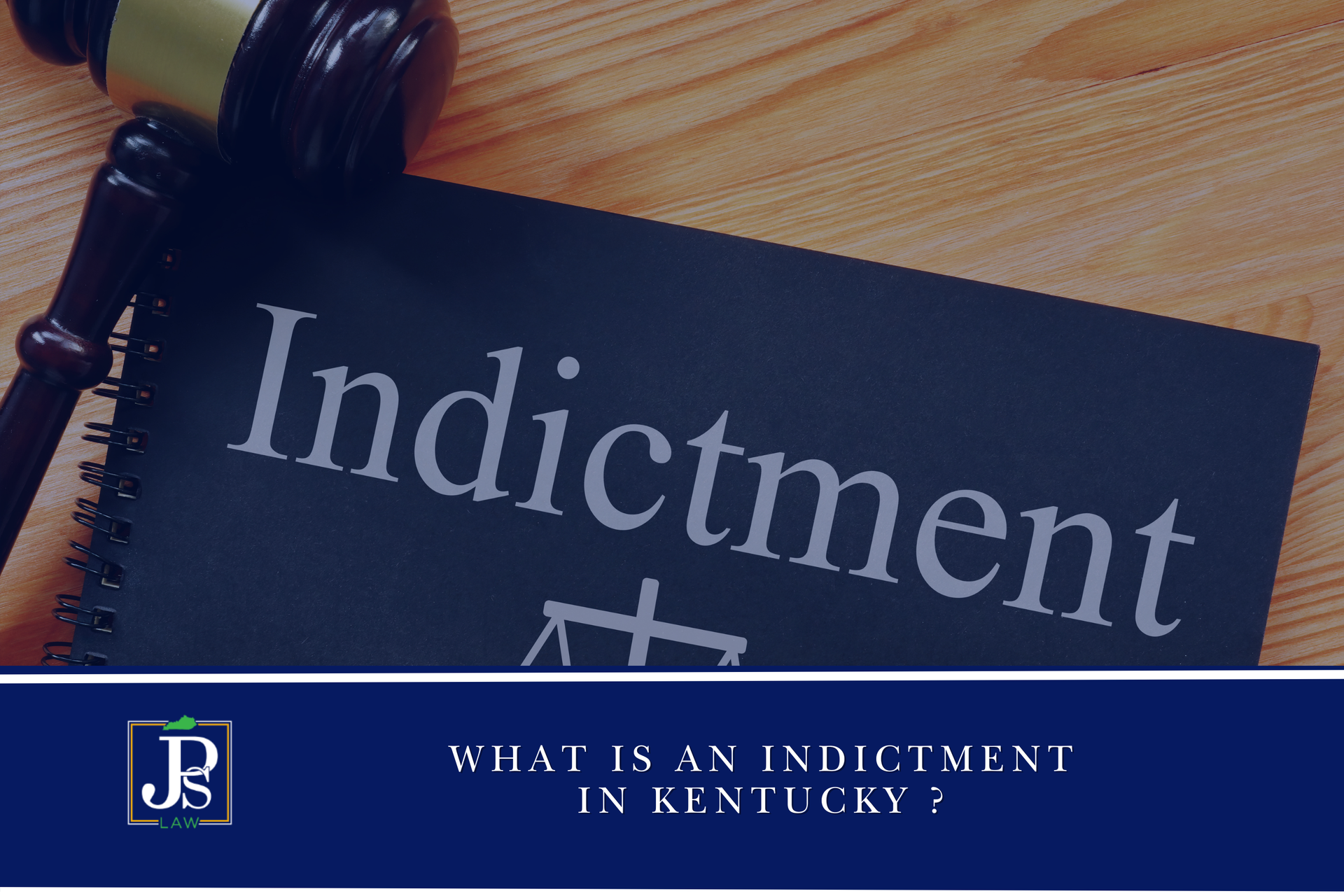For those unfamiliar with the Kentucky legal system, navigating the different types of criminal charges in the Kentucky Revised Statutes (KRS) can feel overwhelming. It's easy to feel lost between complex laws, unfamiliar terminology, and the high stakes of potential penalties.

At JPS Law, we believe that knowledge is power. That's why we offer a dictionary of legal terms and other resources in our blogs. Today, we’re breaking down Kentucky's felony and misdemeanor sentencing guidelines in plain terms—so you can better understand what you or a loved one might face.
Whether you're dealing with a minor misdemeanor or a serious felony charge, knowing the possible consequences is the first step toward building a strong defense. Below, we've simplified Kentucky's sentencing structure to help you understand it all.
How Is A Class A, B, C, and D Felony Classified in Kentucky?

In Kentucky, felonies are categorized into five classes—Capital, Class A, B, C, and D—with penalties increasing in severity from lowest letter classification D to the highest, a capital offense. Here's what you need to know:
Kentucky Felony Sentencing Chart
- Class D Felony - 1-5 years in jail, plus fines and court costs
- Class C Felony - 5-10 years in jail, plus fines and court costs
- Class B Felony - 10-20 years in jail, plus fines and court costs
- Class A Felony - 20-50 years in jail, or life imprisonment, plus fines and court costs
- Capital Offense - eligible for the death penalty
Key Factors That Can Affect Felony Sentencing
Often, crimes involving violence, minors, or vulnerable victims lead to harsher penalties. Other factors that may affect sentencing is one’s exciting criminal record. Kentucky's Persistent Felony Offender (PFO) laws (KRS 532.080) can significantly increase prison time.
On the other hand, some Class D felonies may be eligible for probation or diversion programs.
How Is a Class A or Class B Misdemeanor Classified in Kentucky?
Misdemeanors are less severe than felonies but can still carry jail time, fines, and long-term consequences (like rescinded gun rights, revoked drivers licensure, and difficulty finding employment). Kentucky divides misdemeanors into Class A, Class B, and violations.
Kentucky Misdemeanor Sentencing Chart

Important Notes on Misdemeanors
A misdemeanor can affect professional licenses, gun rights, and immigration status. First-time offenders may qualify for diversion, avoiding a conviction and loss of rights altogether.
Some misdemeanors can be expunged (removed from your record) after a waiting period (KRS 431.078).
How a Skilled Kentucky Criminal Defense Attorney Can Help
Facing criminal charges—a minor misdemeanor or a serious felony—can be life-altering. The right legal strategy can mean the difference between probation and years behind bars.
At JPS Law, we help clients by:
- Analyzing the charges to identify weaknesses in the prosecution's case.
- Negotiating for reduced charges or alternative sentencing (like diversion).
- Fighting PFO enhancements that could add years to a sentence.
- Exploring expungement options to clear your record when possible.
Facing Charges in Kentucky? Don't Navigate the System Alone
Legal jargon and complex sentencing structures shouldn't leave you in the dark. If you or someone you know is dealing with criminal charges in Kentucky, having an experienced defense attorney can make all the difference.
If you or someone you know is facing criminal charges in Kentucky, don't hesitate to contact JPS Law for a consultation. Call us at (859) 940-7480 or contact JPS Law online, and a member of our team will contact you.
Disclaimer: This blog provides general information and discussion about legal topics and services. The information herein should not be construed as legal advice, and readers should not act upon this information regarding their case without seeking professional counsel like that from our team at JPS Law.




